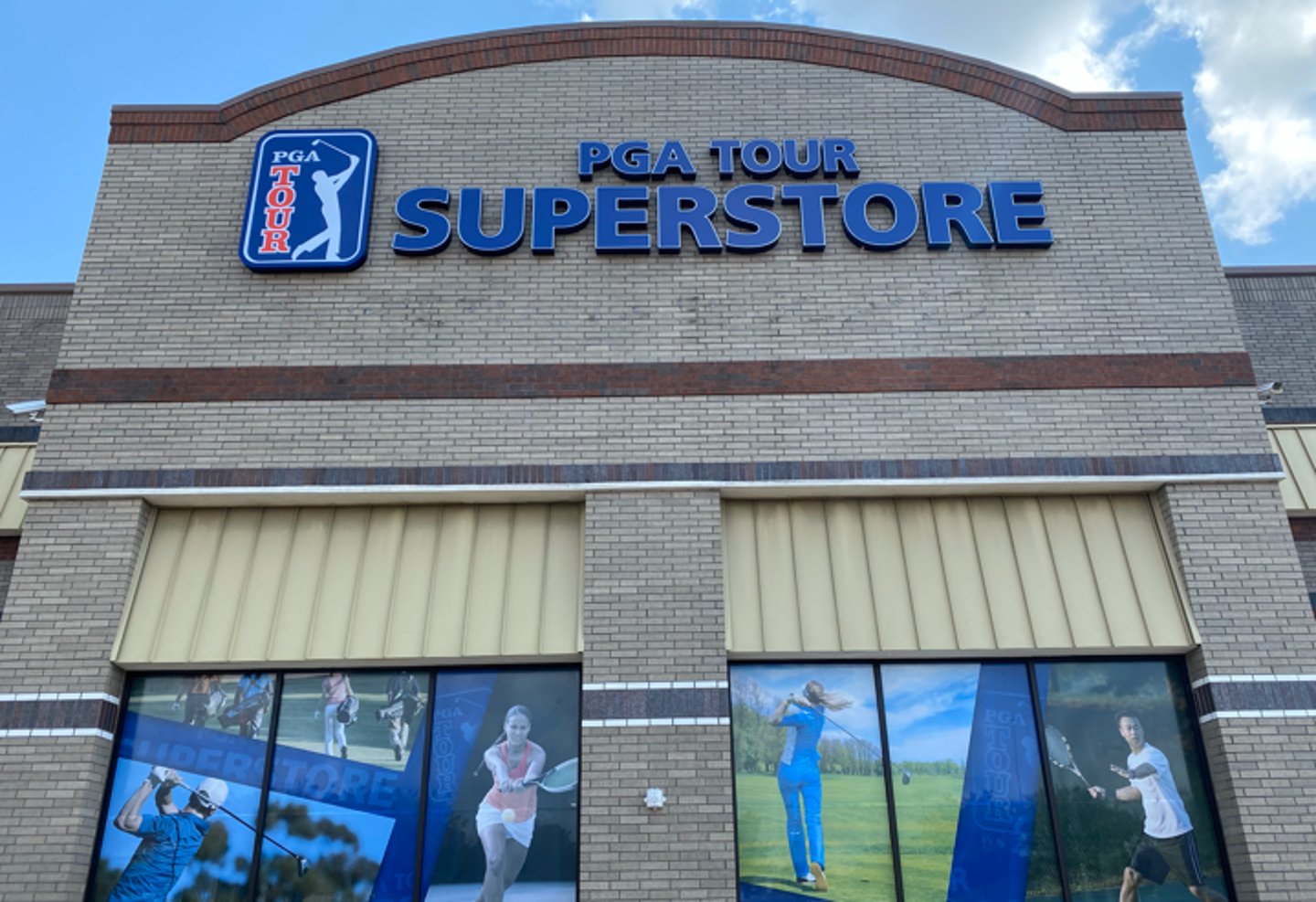Golf is on a roll, and so is PGA Tour Superstore
Few sports have undergone the changes golf has over the last half-decade.
According to the National Golf Foundation:
- Forty percent of beginners in the game are women and, overall, they make up a quarter of the golfing population.
- 3.3 million people took up the game in 2022, the third consecutive year that number has surpassed 3 million.
- Over the past three years, rounds of golf played in the United States have increased by 15%.
Not surprising, then, that PGA Tour Superstore—a chain owned by Home Depot co-founder Arthur Blank that operates 60 stores in 23 states—is expanding its lineup by 14% this year. Two have opened their doors in Boise and Orland Park, Ill., spaces are being built out in Raleigh, N.C., and Commack, N.Y, and four more are yet to be announced.
“The game is changing right in front of our eyes. The average age of a golfer has gone down by seven years. You see traditional brands like FootJoy bringing out hoodies and tighter, tapered pants. Air Jordans are the top-selling golf shoe,” said PGA Tour Superstore’s VP of strategy Ben Helmrath, a former Walmart strategist.
Players and fans are no longer strictly suburban and mildly mannered. Last year at the 16th hole of PGA’s Phoenix Open, golfer Sam Ryder sunk a marvelous putt and was showered with hundreds of beer cans tossed on the green by partying young fans in the grandstand.
As golf continues to resonate with a wider public, PGA Tour Superstore plans to lift its portfolio to 100 stores in the coming four years. Its stores—which sell clubs and gear and house game simulators in which customers can play 18 holes-- have long averaged around 35,000 sq. ft. Now the Roswell, Ga.-based chain is toying with smaller footprints that will allow them to penetrate high-rent urban locations. Its store in White Plains, N.Y., is 25,000 sq. ft., and a similarly sized two-story location will open soon in Chicago’s Lincoln Park.
“Last year, play at off-course golf venues like Topgolf and Drive Shack surpassed on-course golf for the first time. We’re entering a modern era in which golfers dress and play differently,” Helmrath said. “What’s awesome about it is that it’s creating new formats to get people into the game. People who never knew anything about golf are now getting excited about it.”
PGA Tour Superstore considers itself a destination location. On average, customers are willing to drive 30 minutes to a store for custom club fittings and access to the newest equipment. Helmrath says that it’s not unusual for serious golfers to buy a new set of clubs every two or three years.
“We look for sites with good golf course penetration or high resort population, then seek out high traffic areas in those markets for our store locations,” he said. “We’re 70% to 80% located in centers, but we’re open to freestanding locations.”
Levin Management’s E.J. Moawad, the leasing exec who negotiated the PGA Tour Superstore lease for Mayfair Shopping Center in Commack, said the brand is a good get for centers in affluent areas.
“This growing chain brings something completely new and different to Mayfair Shopping Center and undoubtedly will be a tremendous draw for golf and tennis enthusiasts in the community,” Moawad said.


